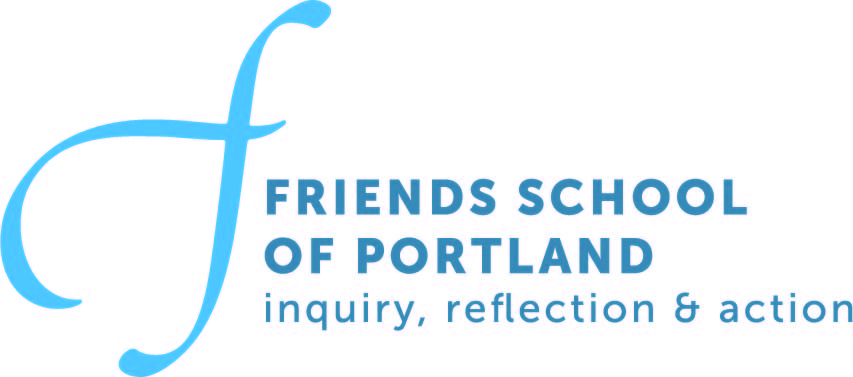A Year-Long Deep Dive into Writing Curriculum at FSP Director of Studies, Nell Sears
Pictured above: First and second grade students on a field trip to the Eastern Promenade to write and share their poetry at the close of their writing unit.
Friends School of Portland's professional development is designed to follow the same Inquiry-Action-Reflection cycle that is a cornerstone of our pedagogy. A year ago, the faculty chose the focus of writing, and during the last school year, we have been engaged in asking questions about our writing instruction, better understanding where we are and where we want to go, and developing action plans around writing.
Inquiry
We began by developing a list of questions and identifying which of those questions had a sense of energy or urgency across the group. Below is a selection of questions that arose.
How do we leave room for joy/play/expression?
How do we balance authentic writing with scaffolding?
What is our vertical alignment/continuum/developmental progression of writing work?
How can we think about decolonizing writing instruction?
How does teaching writing help teach thinking?
How do we use/track/share/assess writing?
How do we know if 8th graders are leaving with the writing skills they need?
In October, teachers choose a professional book group to engage with and a workshop to attend in order to think more deeply about some of these questions in the context of more specific writing topics. Teachers read and discussed Story Workshop, by Susan Harris Mackay; The Writing Revolution, by Judith Hochman and Natalie Wexler; and Science Notebooks in Student-Centered Classrooms, by Jessica Fries-Gaither. They participated in workshops on fine and gross motor development (led by Dareth Law, FSP Spanish teacher and Occupational Therapist), The Power of the Sentence (led by Judson Merrill, a writing professor at USM and author), Writing for Joy (led by Sara Primo and Nadja Tiktinsky), and Science Notebooks (led by Nell Sears and Dr. Sara Donaldson from Wheaton College, MA).
Reflection
In the late fall, teachers formed working groups to focus on particular aspects of the writing program at FSP. Groups worked on revising our writing scope and sequence, creating a scope and sequence for the support of writing in early childhood and specials classes, and piloting the science notebook approach to science writing. Working groups articulated goals and worked together to engage with questions, new learning, and their own practice.
Action
This spring working groups made recommendations to the full faculty about next steps that arose from their work. Teachers also articulated and shared new ways they are thinking about writing and goals they have for their own classroom practice in the coming year. Among these is an interest in including more nature-based activities that promote fine-motor development, focusing on the sentence, implementing a regular journaling invitation, and incorporating more on-demand writing throughout the year.

